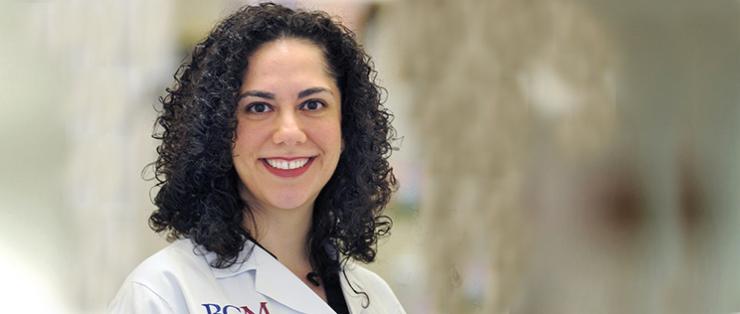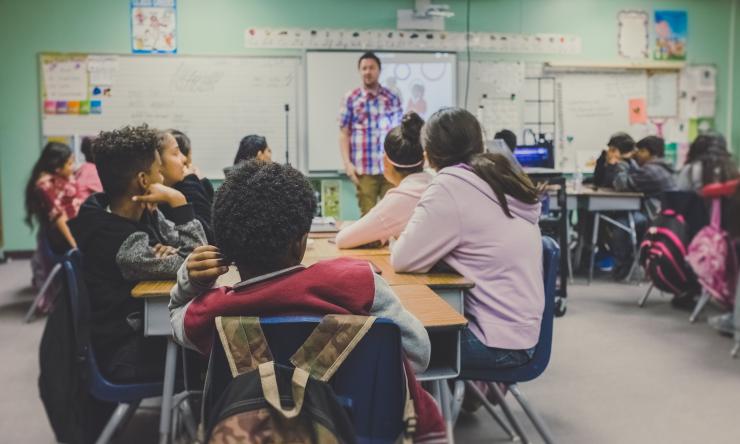How to keep germs out of classrooms

Back-to-school season not only means returning to classmates or advancing to a higher grade, but also the start of flu season and exposure to many illnesses. Whether a student is going into preschool or college, there are ways parents, teachers and students themselves can prepare to stay healthy and help keep the classroom germ-free.
Isabel Valdez, a physician assistant and instructor of general internal medicine at Baylor College of Medicine, said it is most common for students to catch an illness at the start of the school year since they are exposed to more people.
“Kids are going to be kids, and they may not wash their hands as frequently or as thoroughly as adults do – especially the younger ones,” Valdez said. “Preschool-age children are more likely to put toys in their mouth, but even young adults and teenagers tend to put pens or pencils in their mouths and all of those things can harbor germs, especially if they shared them with someone who is ill. It’s very common to catch it that way.”
Valdez provides a few methods to avoid the spread of germs and have a healthy school year:
Promote everyday hand washing
Valdez explains that encouraging hand washing or sanitizing is the number one way to prevent the spread of germs and illnesses in the classroom. She suggests that teachers leave hand sanitizer at their desk or parents keep it in their car so kids can clean their hands anytime they need to wash them.
“Sometimes we’re in a rush and we forget to wash or sanitize our hands after we cough or sneeze; we are good about washing hands after using the restroom, but hand washing is just as important to do especially when you are sick and you are dealing with other people who are sick,” Valdez said.
Cover your mouth
Many germs can be spread through airborne transmission, so it is essential to encourage kids to cover their mouth when they cough or sneeze. Valdez recommends that always stock tissues and keep within reach in the classroom so students can access them when needed.
“Always wash your hands after you cough into them because you can get germs on your hand and can pass it on to more people,” Valdez said. “Try coughing into your elbow or a tissue if you have one handy. Don’t reuse it – make sure you toss the tissue after you use it.”
Wiping down desks or chairs
Teachers can wipe down the classroom with an antibacterial wipe to hinder the spread of germs. Valdez notes that wiping down toys and school utensils is just as important as cleaning the desks and shared tables. She adds that some schools request cleaning materials such as antibacterial wipes, hand sanitizer and tissues be purchased along with school supplies.
“That’s their way of asking for help to promote a healthy and clean learning environment – as long as it’s done within the scope of school policies,” Valdez said.
Stay home from school if sick
Remaining home while sick is an important way to prevent the spread of illnesses. Valdez recommends keeping your child home from school if there are signs of an infection such as a cough, fever or sore throat, and visiting their doctor to get tested if needed.
“To some extent we even do this as adults, we think ‘I’m a little sick but I’m still going to work,’” Valdez said. “However, children are prone to catching or passing something along just as easily as adults since they are in close proximity with other kids.”
Keep vaccinations up-to-date
Making sure your child’s vaccinations are current is another way to decrease the chance of spreading and catching the flu or other illnesses. Valdez encourages people to get vaccinated a few weeks or months after school begins.
“If the flu virus is not here by now it will be by the end of the first semester,” Valdez said. “Kids might be exposed to the flu through coughing and sneezing, so it’s good to prepare yourself with ways to prevent this infection by getting the flu shot.”
Get the right amount of sleep and nutrition
Encouraging good sleep, hygiene and diet is essential for your child’s immunity and growth. Valdez said both children and adults should be sure they are getting plenty of sleep and receiving a sufficient amount of nutrients by eating proper servings of fruits and vegetables. She also encourages drinking plenty of water.
“Promoting healthy kids at any age starts with the basics that we promote with adults, such as getting good sleep,” Valdez said. “It is also important to promote physical activity, whether that’s through sports or exercise at school or anything that keeps them active. Encourage a great diet with kids as well, and that starts with drinking lots of water and eating plenty of vegetables and good protein.”










